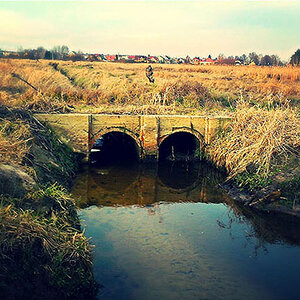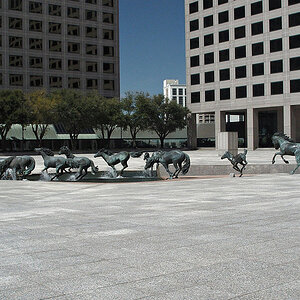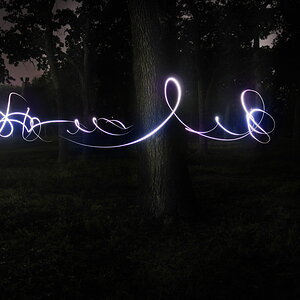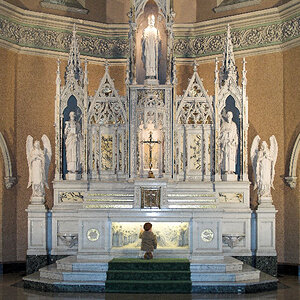doug_a
TPF Noob!
- Joined
- Mar 22, 2010
- Messages
- 1
- Reaction score
- 0
- Can others edit my Photos
- Photos OK to edit
Pro and semi-pro cyclists have a saying..."90% Rider..."
Meaning that, theoretically, the best bicycle will only give you a 10% advantage when compared to even a very basic bicycle setup.
Yet all pro and most semi-pro and most wealthy intermediate and n00b cyclists opt to get near the best bike they can possibly afford...! Whether that 10% matters, or does not mean anything at all.
Love this thread! It brought me out from being a long-time lurker. I have the Nikon d40. I ditched the kit lens and went with mid-range Sigma 17-70 f2.8-4.5 DC Macro HSM that was less than $400. I am not a pro photographer.
First off, are we talking kit lens or other, as this is everything.
The same photographer might get as good, or even better sharper shots with my setup than they would get from a D60, D90, or Dxxx, and their respective kit lenses.
Imagine same photographer with a d40 and these lenses:
1. AF-S NIKKOR 70-200mm f/2.8G ED VR II
2. AF-S NIKKOR 24-70mm f/2.8G ED
3. AF-S NIKKOR 24mm f/1.4G ED
vrs a "pro" with a D3 or a D700 and just the kit lens that came with it.
Is the "pro" shooting for final output of "large prints" or final output of "website images"...?
...extreme scenario, but, you get the point.
Also, d40 has a great sensor size to pixel ratio! Quality pixels.
However, we all know the d40 will not do large prints well...some skilled up-resing in PS will get you to 11x14, but that is it.
Also, the d40 is very light weight.
Also, the d40 body is throw-away cheap (to some)
with only my d40 body and my mid-range Sigma 17-70 f2.8-4.5 "do-it-all" lens (including macro), I still see my next $250, $500, or even $1,000 going into glass, and not a better body. ( I do mostly shoot for the screen and not for large prints, or many prints at all)
great thread...long live the D40:thumbup:
But really, in all reality, someone with a d40 and the kit lens will 98% of the time equal a picture taker that will not deliver consistent, high-quality photography.
Meaning that, theoretically, the best bicycle will only give you a 10% advantage when compared to even a very basic bicycle setup.
Yet all pro and most semi-pro and most wealthy intermediate and n00b cyclists opt to get near the best bike they can possibly afford...! Whether that 10% matters, or does not mean anything at all.
Love this thread! It brought me out from being a long-time lurker. I have the Nikon d40. I ditched the kit lens and went with mid-range Sigma 17-70 f2.8-4.5 DC Macro HSM that was less than $400. I am not a pro photographer.
First off, are we talking kit lens or other, as this is everything.
The same photographer might get as good, or even better sharper shots with my setup than they would get from a D60, D90, or Dxxx, and their respective kit lenses.
Imagine same photographer with a d40 and these lenses:
1. AF-S NIKKOR 70-200mm f/2.8G ED VR II
2. AF-S NIKKOR 24-70mm f/2.8G ED
3. AF-S NIKKOR 24mm f/1.4G ED
vrs a "pro" with a D3 or a D700 and just the kit lens that came with it.
Is the "pro" shooting for final output of "large prints" or final output of "website images"...?
...extreme scenario, but, you get the point.
Also, d40 has a great sensor size to pixel ratio! Quality pixels.
However, we all know the d40 will not do large prints well...some skilled up-resing in PS will get you to 11x14, but that is it.
Also, the d40 is very light weight.
Also, the d40 body is throw-away cheap (to some)
with only my d40 body and my mid-range Sigma 17-70 f2.8-4.5 "do-it-all" lens (including macro), I still see my next $250, $500, or even $1,000 going into glass, and not a better body. ( I do mostly shoot for the screen and not for large prints, or many prints at all)
great thread...long live the D40:thumbup:
But really, in all reality, someone with a d40 and the kit lens will 98% of the time equal a picture taker that will not deliver consistent, high-quality photography.
Last edited:


![[No title]](/data/xfmg/thumbnail/37/37520-d3e4d6582aa2781be7abf64e8651db45.jpg?1619738128)
![[No title]](/data/xfmg/thumbnail/42/42458-8274869c9294d2f0655f80c8f0e6048c.jpg?1619740191)





![[No title]](/data/xfmg/thumbnail/40/40290-c6963a3e1b72b7543d1633356ec3fc9c.jpg?1619739409)
![[No title]](/data/xfmg/thumbnail/36/36099-feb952513e45dbf9f061ab28c1dc1121.jpg?1619737342)


